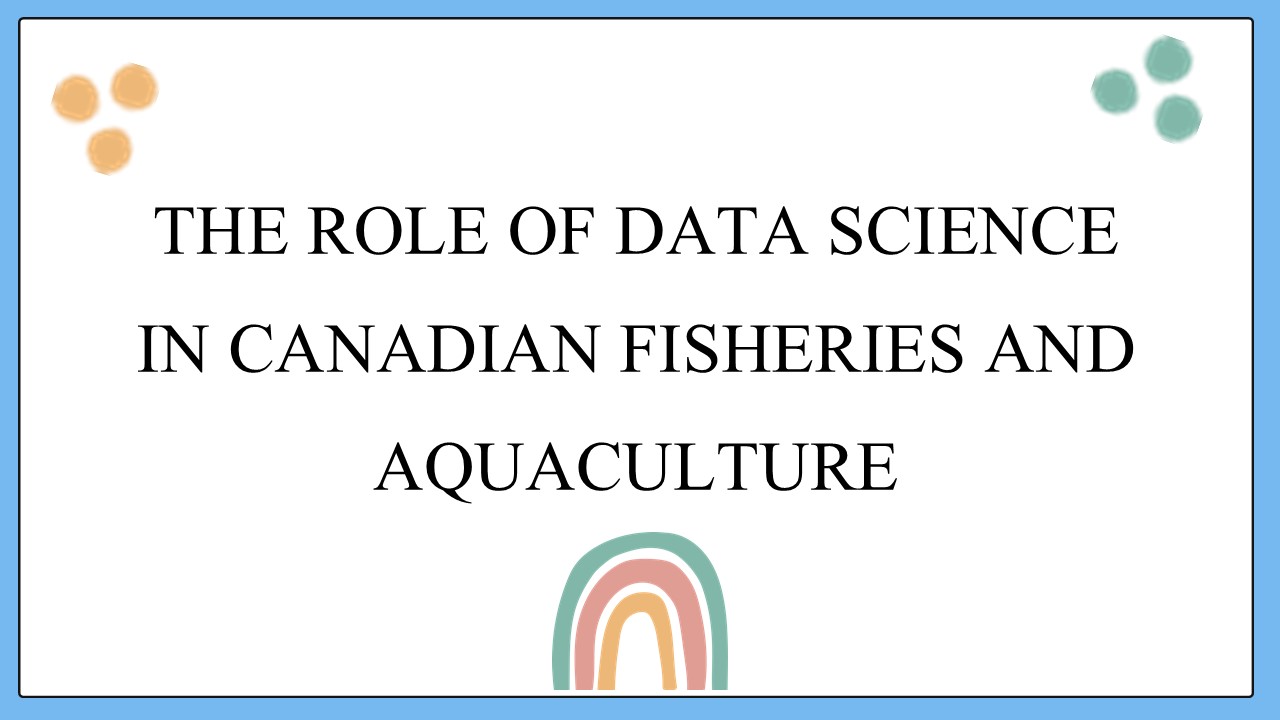The Impact of Data Science in Canadian Fisheries & Aquaculture - PowerPoint PPT Presentation
Title:
The Impact of Data Science in Canadian Fisheries & Aquaculture
Description:
Data science is transforming Canadian fisheries and aquaculture by optimizing resource management, improving sustainability, and enhancing operational efficiency. Develop the skills to lead these advancements with a comprehensive Data Science Course in Canada. – PowerPoint PPT presentation
Number of Views:0
Date added: 18 September 2024
Slides: 10
Provided by:
Authorfordy
Category:
How To, Education & Training
Tags:
Title: The Impact of Data Science in Canadian Fisheries & Aquaculture
1
THE ROLE OF DATA SCIENCE IN CANADIAN FISHERIES
AND AQUACULTURE
2
SUSTAINABLE FISHERIES MANAGEMENT
Data science plays a crucial role in monitoring
fish populations, environmental conditions, and
ecosystems. Advanced algorithms and machine
learning enable sustainable fisheries management,
ensuring that marine resources are preserved for
future generations.
3
PRECISION IN AQUACULTURE
Aquaculture benefits from data-driven
technologies, allowing precise control over
feeding schedules, water quality, and fish
health. Predictive models and real-time
monitoring tools help optimize production and
reduce waste, promoting a more efficient
aquaculture industry.
4
ILLEGAL FISHING DETECTION
Data analytics and real-time satellite tracking
systems are used to detect illegal, unreported,
and unregulated (IUU) fishing activities. This
allows authorities to enforce regulations more
effectively and maintain the sustainability of
Canadian waters.
5
ENHANCING SEAFOOD MARKET INSIGHTS
Data science allows businesses in the seafood
industry to analyze consumer trends and market
demands. By predicting changes in consumption
patterns, companies can adjust their production
and distribution strategies to meet market needs
efficiently.
6
CLIMATE CHANGE IMPACT PREDICTION
Data science is instrumental in developing
predictive models for the impacts of climate
change on marine ecosystems. These models help
fisheries adapt to environmental shifts, ensuring
the longevity of both wild fish populations and
aquaculture.
7
ENVIRONMENTAL CONSERVATION
With the help of data science, conservation
efforts in Canadian fisheries are enhanced.
Through analysis of marine habitats and species
distributions, policymakers can design better
protection strategies to conserve marine
biodiversity.
8
TECHNOLOGICAL INTEGRATION FOR FUTURE GROWTH
The integration of IoT devices, machine learning,
and big data analytics is paving the way for the
future of Canadian fisheries and aquaculture.
These technologies support automation,
sustainability, and improved operational
efficiency in the industry.
9
CONCLUSION
Data science is transforming the Canadian
fisheries and aquaculture sectors by promoting
sustainable practices, enhancing market
strategies, and protecting marine ecosystems. A
data science course in Canada equips aspiring
professionals with the necessary skills to drive
innovation and sustainability in this field.































